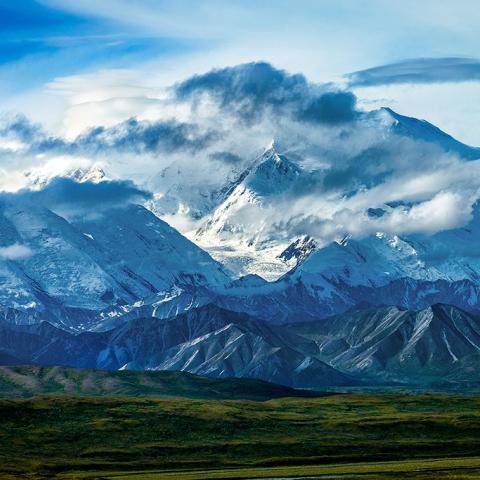National Parks and Conservation Association staff are wondering why, in light of the adverse impacts that will result, the National Park Service is planning to relax hunting regulations on national preserves in Alaska.
“This assessment clearly states that wildlife viewing opportunities on national parklands are likely to be diminished. It admits that baiting bears on these lands could increase conflicts, if bears become habituated to human food," said Jim Adams, the Alaska regional director for the parks advocacy group. "And it admits that the new rule would reduce natural diversity on national preserves. With such clearly identified conflicts, why is the Park Service proceeding with this unnecessary, wasteful process of replacing commonsense regulations with war on park bears and wolves?”
The proposed regulations, which would align Alaska national preserves with state rules that were implemented to suppress carnivore numbers in order to increase game populations, were requested by the Trump administration.
The practices, which the Park Service banned in 2015 and which are now set to be legalized, would allow:
* Taking any black bear, including cubs and sows with cubs, with artificial light at den sites
* Harvesting brown bears over bait
* Taking wolves and coyotes (including pups) during the denning season (between May 1 and August 9)
* Taking swimming caribou
* Taking caribou from motorboats under power
* Taking black bears over bait
* Using dogs to hunt black bears
An environmental assessment that looks at the changes and lays out the Park Service's preferred alternative is open for public comment through November 5 at this site.




 Support Essential Coverage of Essential Places
Support Essential Coverage of Essential Places







Comments
From the Environmental Impact study. "due to the low level of additional take expected under the proposed action compared to current conditions, overall most opportunities to view wildlife, including predators, and opportunities for scientific studies would remain similar to those that currently exist in most areas of national preserves." Reading through the various impacts to actual numbers that too is expected to be minimal. The only thing contained in the study that provides a clue as to the "why" I could find in the report is this. "Federal subsistence users could see some beneficial impacts under the proposed action because non-rural family members would be able to help their rural family members hunt by methods of take that are currently prohibited for sport hunters" I would think simplifying regulations (aligning them with the state) should result in some savings but am not familiar enough to provide an example. Unless the overall harvest is being increased (which doesn't seem to be the case) the overall impact of this seems very minimal (if any)to all involved while perhaps offering more opportunities for hunters. Of course the anti hunting crowd will see this as a bad thing but it sounds to me that if enacted, no one is going to notice any difference other than a few hunters subsistence users.
That said it probably wasn't / isn't worth the effort already spent but I guess you don't know that until you do the study.
I'd like to think in the good old days this could have been accomplished in a 30 minute meeting with the right people sitting around a table.
We have visited Alaska's national parks & preserves on two visits- in 2016 & 2018- Denali, Lake Clark & Kenai Fjords. These visits were specifically for wildlife viewing and were sucessful. We didn't visit & spend a good bit of money to find that animals had been hunted in the parks and preserves. The hunting practices listed above are nothing more than legalized poaching. They are abhorrent and must be outlawed.
Funny, I can't find the article that questions Zike's standing to change the regs. Where did it go?
Here are a few...
https://www.nationalparkstraveler.org/2018/05/park-service-reverse-ban-b...
https://www.nationalparkstraveler.org/2018/08/scientists-take-exception-...
https://www.nationalparkstraveler.org/2018/09/nps-weakening-hunting-regs...
Thanks Kurt, those don't seem to question Zinke's authority in their title, like the one I was looking for
https://www.nationalparkstraveler.org/2018/09/law-professor-interior-sec...